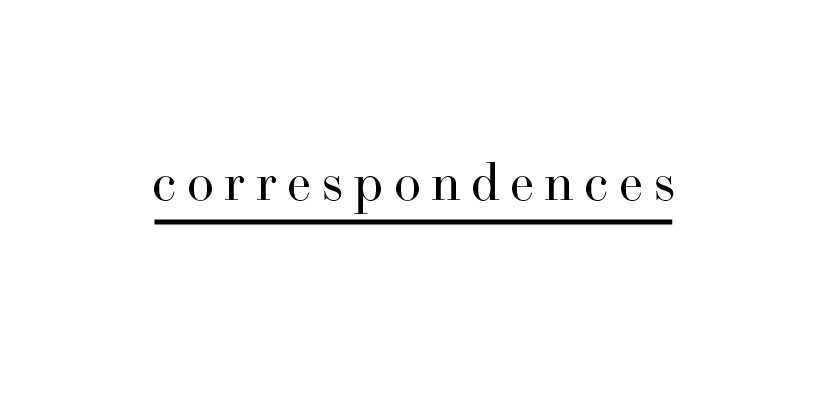Introducing Bilum & Bilas
We're thrilled to introduce our PNG-based partner, Bilum & Bilas, whose brilliant artists and community leaders, Selina Navi, Betty Huss and Maureen Charlie, create the beautiful bilums and jewellery we exhibit and offer for sale in our space.
Bilum & Bilas is a PNG-based social enterprise that supports female artisans to develop a wider market for their crafts and improve their livelihoods.
Early next year, we are planning a special event and collaborative installation featuring the Bilum & Bilas artworks during the residency of Birrarungga/Melbourne-based resident artist Yoko Ozawa.
With the support of the Department of Foreign Affairs and Trade, we also hope to stage a screening of The Bilum Story, a short film released earlier this year that celebrates the incredible PNG women social entrepreneurs who have brought the bilum and their stories into the spotlight.
To learn more about the Bilum & Bilas artists and their processes, read on for a summary and watch the beautiful video at the end made by the team at Bilum & Bilas.
To borrow an anthology of texts exploring PNG's contemporary art (bilum and more), head to our library to borrow No.1 Neighbour: Art in Papua New Guinea 1966-2016.
Tenkyu tru/thank you, Selina, Betty and Maureen, for trusting us to share your beautiful works with audiences here in Birrarungga/Melbourne.
In closing, don't forget to join us for this month's events, including a walk along the Moonee Creek reserve with resident artist Edwina Stevens. More details here.
Lukim yu behain / See you later
correspondences Studio
A bilum is an iconic Papua New Guinean string bag holding deep cultural and emotional significance. Bilas is decoration and adornment used throughout Papua New Guinea to celebrate diversity and express one's culture.
Many women in Papua New Guinea try to earn supplementary income to support their families by selling their traditional crafts such as bilas and bilums, but market access is limited to unpredictable local sales, making it hard to earn enough income to survive …
In 2014 Bilum & Bilas was started as an online bilum store focused on linking artisanal products to international buyers in an effort to generate better income for bilum weavers and artisans.
Over time, our small team discovered the complexities, expense and instability of the craft and bilum supply chain. The intricate craftsmanship, traditional processing and labour that goes into creating a bilum is what makes them so unique, but it also means they are challenging to produce at a scale that provides the artisans with a stable and equitable income.
Working closely together we developed a solution and the Bilum & Bilas accessory was born.
Our contemporary jewellery is inspired by the beauty and essence of the bilum, and retains the traditional weaving techniques and natural fibres, yet in micro form. Creating intricate representations of bilum technique, streamlines the making process, enabling our small team to optimise production and create stable jobs for Papua New Guinean women with these unique skills.
Bilum & Bilas: The Artists
Selina Navi
Selina is from Kaningara village in Angoram District, East Sepik Province of Papua New Guinea. Selina now lives in Hohola in Port Moresby and is a single mother to two adopted girls; Naomi and Panina. Selina lost her mother when she was 4 years old. From that early age, her father’s sister taught her how to make fibres to weave bilums. Growing up in a village along the Sepik river, Selina made bilums to sell to tourists, and when she was 22 moved to Port Moresby to find a bigger market for her products.
“I’m very happy working with Bilum & Bilas, as I receive a guaranteed income and I don’t have to rely on market sales. The Jewellery we are making now is something new, so I hope that more people will buy these styles and I’ll be able to continue getting work. We now have more secure working environment and benefits.”
Betty Huss
Betty is from Kaningara village in Angoram District, East Sepik Province of Papua New Guinea. Betty is Selina’s sister and was 7 when their mother died. She first moved to Port Moresby with her husband and was later widowed with two children. When she remarried she had another child and bought some ground at Hohola where she now lives and supports a large family. Betty learnt bilum weaving from her Aunty and has always woven bilums around her other responsibilities, to earn extra money to make ends meet.
“I have many family members relying on me and I had been out of work for some time. Working with Bilum & Bilas gives me financial security that I didn’t have. I like being able to use the skills my Aunt taught me to earn money and work in a good environment.”
Maureen Charlie
Maureen’s mother is from Chimbu and her father’s from Kairuku, Central Province and she was born in Goroka. When she was a child, Maureen began to copy her mother and Bubu (Grandmother) weaving bilums and made her first bilum when she was only 6 years old. After moving to Port Moresby and getting her first job, she stopped weaving bilums, but has started weaving again through her job with Bilum & Bilas.
“It’s been great to refresh my weaving and I have regained my interest in my traditional skills. I had put these to one side whilst working in other jobs, but now I feel proud to be weaving again and earning money from this skill I have. Bilum & Bilas is promoting our culture and helping us with designs that will get us better sales and better income.”
Bilum & Bilas: The Process
As the team at Bilum & Bilas explain: 'Bilum weaving is passed down from one generation of women to the next and helps lay the foundation of society; babies sleep in bilums from birth, villages are sustained by bilums as they carry firewood and food, and bodies are adorned with bilums in times of celebration'.
A bilum can take months to make. The growing, harvesting, cleaning and drying of the plants used to make the bilum fibres alone can take months. Once dried, the artists expertly roll and twist the fibrous strands together by rubbing them on their thighs to form a single rope (an action called 'tanim top; it's a joy to watch the artists at work - the women often sing while they work). The rope is then handwoven into a bilum using a figure eight weaving pattern.
Every bilum is unique. The artists adopt colours, patterns, shapes and styles specific to their country or village's ancestral stories and techniques. But, PNG artists are renowned innovators widely known for their artistry that often merges time-honoured traditions with new ideas that express their creative vision and worldview in ground-breaking, exciting ways.
The artists of Bilum & Bilas have brought this same innovative, creative spirit to their jewellery creation. The intricate woven elements that speak of the connection to nature, ancestral skills and tradition retain a central focus. Still, they have been carefully balanced with elements of contemporary style and precious and semi-precious metals to create a truly elegant jewellery range/ bilas.
Press the button below to watch Bilum & Bilas’ wonderful video of the artists’ stories of bilum, life and the creative process.
Copyright © 2022 correspondences (ABN 67650872343) and the artists. Credit: Installation photographs of jewellery and bilums by Annika Kafcaloudis. Original artworks by the artists of Bilum & Bilas Selina Navi, Betty Huss and Maureen Charlie. © The artists. Artist bios, quotations and photographs of the artists are © Bilum & Bilas and the artists.










